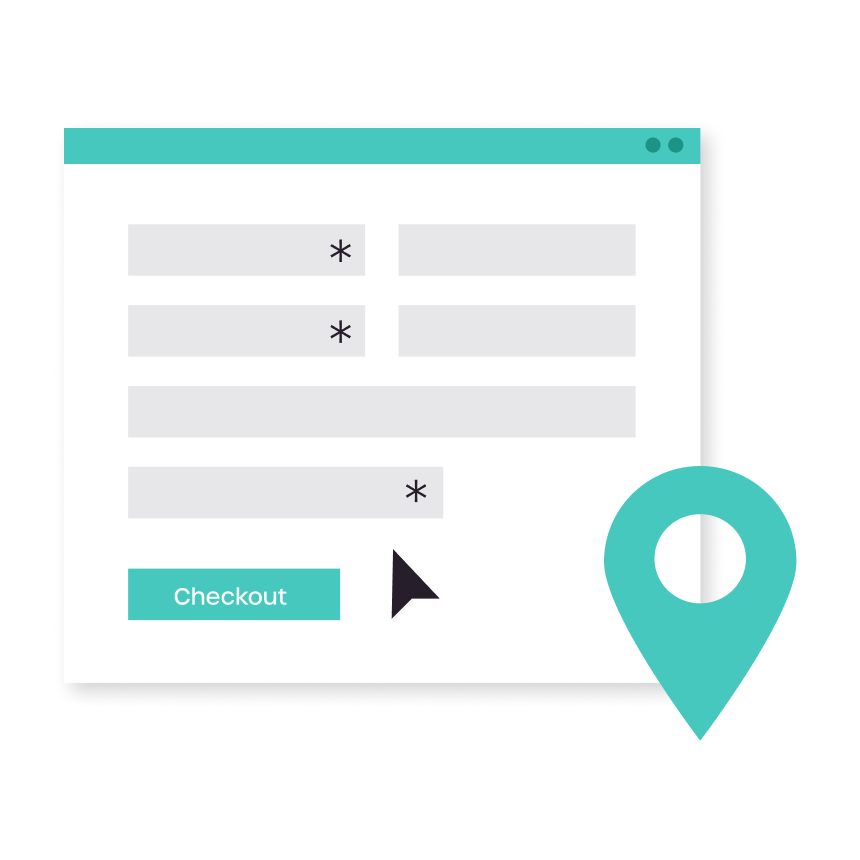
A retailer’s guide to surviving Black Friday
Where once Black Friday saw crowds converging into high street stores, we now see surges in web traffic. Instead of checkout staff serving long queues of customers, it’s now warehouse teams processing and packing orders to make sure goods arrive on time and to the right place.
Sales may predominantly happen online but with increased competition, supply chain and cyber security issues, and now the cost of living to contend with, it’s still a hectic time for stores. So, we’ve compiled a survival guide for retailers in this crucial trading period.
Increase conversions with improved UX
Making just a few small changes to your website could have an instant impact on your brand reputation, customer retention and conversions. Let’s look at some of the ways you could improve UX, reduce cart abandonment and boost sales this Black Friday.
Enable guest checkout
Registering for an account is one of the top reasons cited for shoppers abandoning their cart. Even people who have an account frequently forget their login details, so it’s easier to check out as a guest rather than jump through hoops to recover a password.
Instead, after a successful purchase, offer guest customers the option to log in or register to link their purchase to an account. You could include this in a follow-up email offering incentives to sign up for an account.
Get type ahead address validation
Another way to speed up the checkout process for customers is by integrating type-ahead address validation into your online forms. Rather than having to manually type an address or select it from a drop-down menu, customers can find their address in as little as three keystrokes, even if common typos are entered.
Not only is this the quickest and easiest way to capture address data, but it’s also the best mobile experience for shoppers. These are the important details of digital interaction that matter to consumers; our 2022 Holiday Report reveals that 22% of global shoppers are likely to abandon their holiday shopping cart if address autofill is not present at checkout.
Launch the relevant keyboard
By 2025, retail mCommerce is predicted to reach $728bn and account for 44.2% of retail eCommerce sales in the US.
With a growing emphasis on mobile, retailers need to ensure that shoppers can enjoy the same experience, regardless of which screen they use. Make sure you launch the relevant keyboard for each field of your form. For example, if you need a phone or card number, launch the numeric keypad. Doing so will remove the frustration of going back to manually find the right keys.
Help customers find their address in one tap
Geolocation is the quickest, most convenient way for your customers to find their location on your mobile site. With a single tap, shoppers can find their current location using their mobile device GPS signal. Latitude and longitude results are returned, including the full and correctly formatted address. So, as well as enhancing UX by eliminating the need to type altogether, it also ensures you’re only collecting quality data.
Check out address verification and data cleansing solutions

Make sure special offers reach your customers
Email is one of the most effective ways of communicating Black Friday special offers with customers. But only if it arrives in their inbox. Our research shows that email address data degrades at a rate of around 7% each year. So, if you capture 100 emails accurately now, that means only 93 will be useable in 12 months’ time.
The same research reveals that 17% of email address data is captured incorrectly, either because the user has made a genuine input error or typo or given a fake address. Allowing customers to free-type email addresses without validation runs the risk of collecting useless data, which impacts directly on marketing ROI. Batch cleansing your email database regularly helps to identify and remove both invalid and outdated email addresses.
Fast, accurate address capture for online forms

Reduce failed deliveries
A seasonal increase in sales comes with the increased chance of failed deliveries. Whether a customer makes a typo when entering their address manually or accidentally clicks on the wrong address in the postcode finder, the smallest error can lead to an expensive chain of events. Failed or late deliveries are an inconvenience for the customer and a significant cost to a business. The average cost of failed deliveries to a retailer each year is almost $200,000. And even if the courier was at fault, 78% of consumers expect the retailer to resolve the issue.
Integrating an address validation tool at checkout ensures you’re only capturing the most accurate and up-to-date customer address data.
Increase email delivery rates with email address validation

Improve fulfilment efficiency
A common issue retailers face is when the data they provide to couriers isn’t correctly formatted for courier systems. For example, a courier import specification might require postcode in uppercase, or a populated county field. If these aren’t mandatory fields in your online checkout, problems quickly arise at fulfilment, significantly slowing the delivery process, or worse, leading to failed deliveries.
Loqate's automated DCOL solution is ready to receive and process files 24/7. Address data is submitted via SFTP for reformatting, the files are processed and returned to the exact specification. It’s possible to enrich your data further by appending other useful delivery variables, such as UPRN, geocodes and DPS.
Mitigate cybercrime risks
The growth in online shopping has left retailers and customers increasingly open to cyber-attacks. And this is heightened whenever there are peaks in shopping activity. So, cybercrime poses a big risk for businesses around Black Friday and Cyber Monday.
Having technology that automatically inputs and validates information accurately and securely not only minimises the risks of deliveries ending up at the wrong doorstep but the potential threats of online fraud and financial crime too.
This article was originally published by Loqate, a GBG solution
Sign up for more expert insight
Hear from us when we launch new research, guides and reports.


